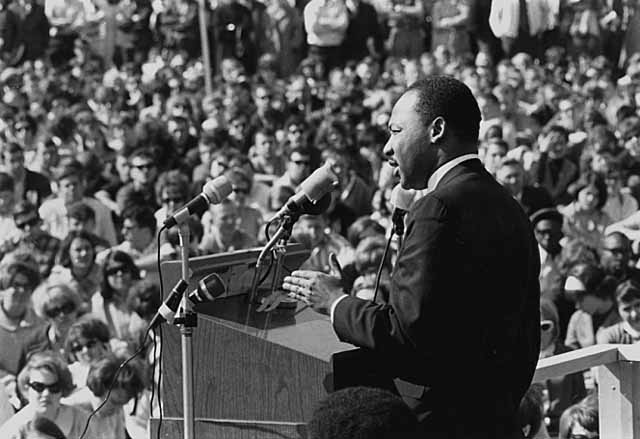Next week, the country will celebrate Martin Luther King Jr., or MLK, Day. Students and workers alike will spend the day at home, reminded of the importance of protesting injustice and honoring the sacrifices that Rev. King made. The holiday is close to King’s birthday of January 15, but predictably, activists had a difficult time establishing the observance. It’s hardly surprising that our country resisted creating a holiday named for its greatest activist, but illuminating, nonetheless.
In fact, in a few states, the holiday is shared between Rev. King and Robert E. Lee.
Just four days after he was assassinated in 1968, John Conyers, a Democratic Congressman from Michigan, proposed a federal holiday in King’s honor. His bill quickly failed, but he continued his fight. Rep. Conyers had visited Alabama during the peak of the civil rights movement and marched alongside its leaders, so his persistence isn’t surprising. Eventually, he helped found the Congressional Black Caucus (CBC) and enlisted its support of his bill for 15 years of repeated introductions.
In 1983, the CBC had collected millions of signatures as civil rights demonstrators convened on Washington to celebrate the twentieth anniversary of the March on Washington. Around that time, legislation establishing MLK Day made it to the floor again. This time, Sen. Jesse Helms, a Republican from North Carolina, filibustered the bill, upsetting Sen. Daniel Moynihan of New York. A dramatic floor confrontation ensued, and the bill passed, after which President Ronald Reagan immediately signed it.
So, in 1986, the country celebrated its first MLK Day. As you can imagine, states were slow to adopt the holiday for their own calendars. One by one, state legislatures and governors came to recognize the occasion, but multiple Southern states went a different route.
Alabama, Mississippi, Arkansas, and Virginia all refused to let Rev. King have his day.
It just so happened that Robert E. Lee’s birthday was four days after Rev. King’s on January 19. A few of those states already had holidays honoring Lee and sought to undercut King’s importance and accomplishments by creating holidays like “Robert E. Lee/Martin Luther King Birthday” in Alabama, or “Lee-Jackson-King Day” in Virginia, which honored Lee and Stonewall Jackson, another prominent Confederate.
Since 2000, every state has observed MLK Day in some fashion. A few still haven’t given it the singular and solo observation it deserves, for obvious reasons. States’ pushback against the holiday is revealing in that it sums up a huge issue with American civil society right now. We are rejecting the good parts of our history in a way that will doom us to repeat the bad parts.
In response to the misguided uproar over critical race theory, dozens of school districts across the country have banned the teaching of some elements of the civil rights era. This will create a generation that’s totally ignorant to the importance of what Rev. King accomplished in his time as an activist and how that affects our lives even today.
We firmly believe the best way to avoid repeating history is to know it. Coupling MLK Day with celebrations honoring racist traitors from our past is a deliberate decision to ignore a pivotal moment for communities of color and the entire country. For us to truly understand why Rev. King marched and organized, we must demand his namesake holiday stands alone.
Rest in power, Martin Luther King Jr.

